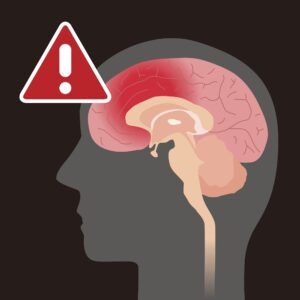Are Opioid-Related Medication Errors Considered Medical Malpractice?

Overprescribing is a serious opioid-related medication error. So, do you have a medical malpractice case?
Pain medication addiction and opioid-related medication errors are a very real problem impacting individuals and their families across the United States. In most cases, when patients are prescribed medication as part of their pain management, it is for easing the discomfort of patients. However, without the proper instructions or necessary follow-up actions from the prescribing physician, the situation can turn severe. A doctor who negligently prescribes or administers medication may be held liable. Keep reading to learn more about opioid-related medication errors. Please reach out to The Law Offices of Cardaro & Peek for further assistance in your case .
The Current Opioid Crisis
Information provided by the National Institute on Drug Abuse shows more than 130 people in the U.S. dying from an opioid overdose every day. Opioid-related medication errors involve prescription pain relievers, heroin, and synthetic drugs like fentanyl. In some cases, people were given pain medication as part of their healthcare treatments, but they develop a dependency that turns into an addiction.
The Doctor’s Liability
Improperly treating patients with pain medication can happen in many ways. Opioid-related medication errors might include wrongly prescribing pain medication, overprescribing opiates, administering the wrong amount (which can lead to an overdose), or not asking about a patient’s history with drug addiction or substance abuse. If a doctor fails to recognize or respond to signs of the patient’s drug addiction, the doctor can be liable for medical negligence or malpractice as a result. Not referring the patient to long-term pain management treatment as an alternative to continuously prescribing medication, or not referring soon enough, could also indicate negligence.
Do I Have a Malpractice Case?
If you or a loved one were over-prescribed opioids, and the doctor failed to take appropriate steps in response to the pain medication addiction, the prescribing doctor should be held responsible for their negligent actions. Opioid dependence can lead to dangerous opioid addiction and possible overdose. As with most medical malpractice cases , four significant elements must be proven. These elements are: a doctor-patient relationship existed, the doctor was negligent of their patient’s care, that negligence resulted in injury, and that the patient suffered damages from those injuries. The Cardaro & Peek team is equipped with the medical and legal knowledge to assess your case.
Contact The Law Offices of Cardaro & Peek, LLC Today
Do you believe that you or your loved one has suffered as a result of medical malpractice or medical neglect? You need to talk to an experienced team of local lawyers today.
The lawyers at Cardaro & Peek, LLC have the experience and resources necessary to investigate and litigate all types of medical claims throughout Maryland and Washington D.C. Cardaro & Peek, LLC has medical personnel on staff and has access to nationally recognized, board-certified physicians and other experts, to assist in the investigation, analysis, and prosecution of all types of medical malpractice claims. If you or a loved one have experienced malpractice, give us a call at 410-752-6166. Please visit our website www.cardarolaw.com and follow us on Facebook , Twitter , and LinkedIn for more information.
The post Are Opioid-Related Medication Errors Considered Medical Malpractice? appeared first on .







Baltimore Office
201 N Charles St #2100 Baltimore, MD 21201
Washington DC Office
1300 I Street N.W., Suite 400E
Washington, DC 20005



